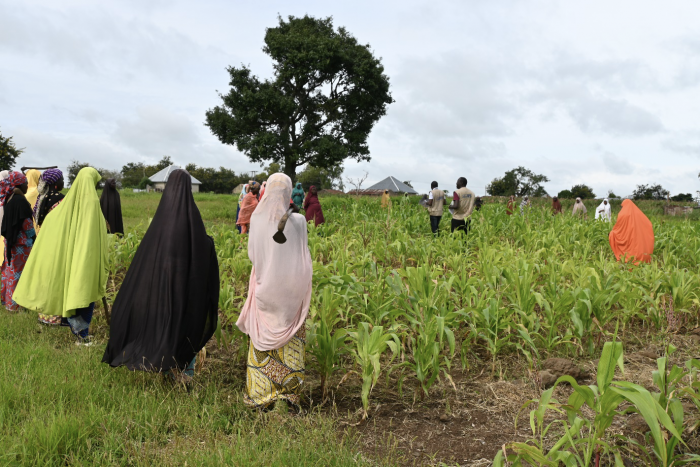Undoubtedly, a fundamental challenge that is transforming life on earth—both now and in the coming decades—is our rapid climate change. Greenhouse gases, ocean acidification, unpredictable weather and storms, and desertification are exacerbating existing societal challenges.
Current climate change is further straining natural resources, global and local economies, biospheres, food security and international development.
To address the global impacts of climate change on the agro-ecosystem, some actions can be adopted, such as education to inform and inspire behavior change, prevent negative impacts and mitigate threats.
In Adamawa State, northeastern Nigeria, the Jesuit Refugee Service is championing new techniques through School of farmers initiative (FFS). The program enables farmers who survived the Boko Haram insurgency to train and learn new farming techniques while providing access to high-income earning opportunities.
“We have realized that over 50 percent of the population lives from agriculture, but farmers have little or no knowledge of how climate change affects their business,” says JRS Livelihoods Coordinator Ayodele Oluseyi.
“Hence, JRS is happy to equip farmers here with knowledge on how to adapt to climate change and different planting seasons, creating awareness on issues affecting farmers.”
According to the United Nations Office for the Coordination of Humanitarian Affairs (UN OCHA), across northeastern Nigeria, 7 million people may be food insecure, up from 3.7 million before COVID-19.
Most of them are women and children. “[Covid-19] it has stopped children from going to school, transport costs have increased and we cannot go to our businesses,” he says Sarah Isakoudisplaced in Borno.
FFS additionally provides improved seeds – genetically modified to adapt and grow in difficult climates – fertilizers and herbicides, and offers a guide on how to deal with losses related to food storage issues linked to climate change.
The northeastern region of Nigeria is easily becoming an arid habitat at a very rapid rate annually, partly due to poor hygiene practices. However, climate-smart agriculture has already helped boost agricultural productivity and generally improve the quality of crop production in the region.
Mr. Iko, a member of the extension agent at JRS Farmers Field School, says that “Internally Displaced Persons (IDPs) in Girei community, especially women struggle to engage in agricultural activities with little or no funding.
Some women during the off – dry season – decided to do menial jobs to stay alive until the next growing season. When the rain stops, the crops begin to dry up and it is sad to see efforts made during cultivation go to waste.
However, JRS helped train and engage women to be more productive during and after the agricultural season.
Ultimately, education is vital for building knowledge, skills and behaviour Successful farmers must adapt to climate change. It supports farmers to be environmentally responsible and actively lead issues in their communities.



